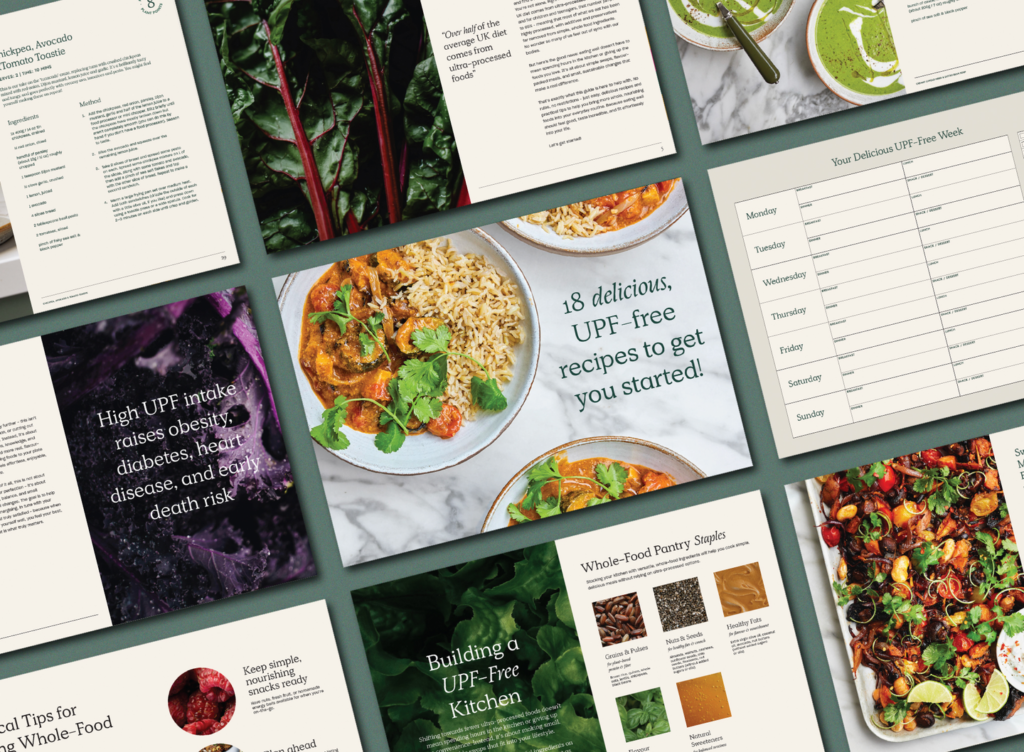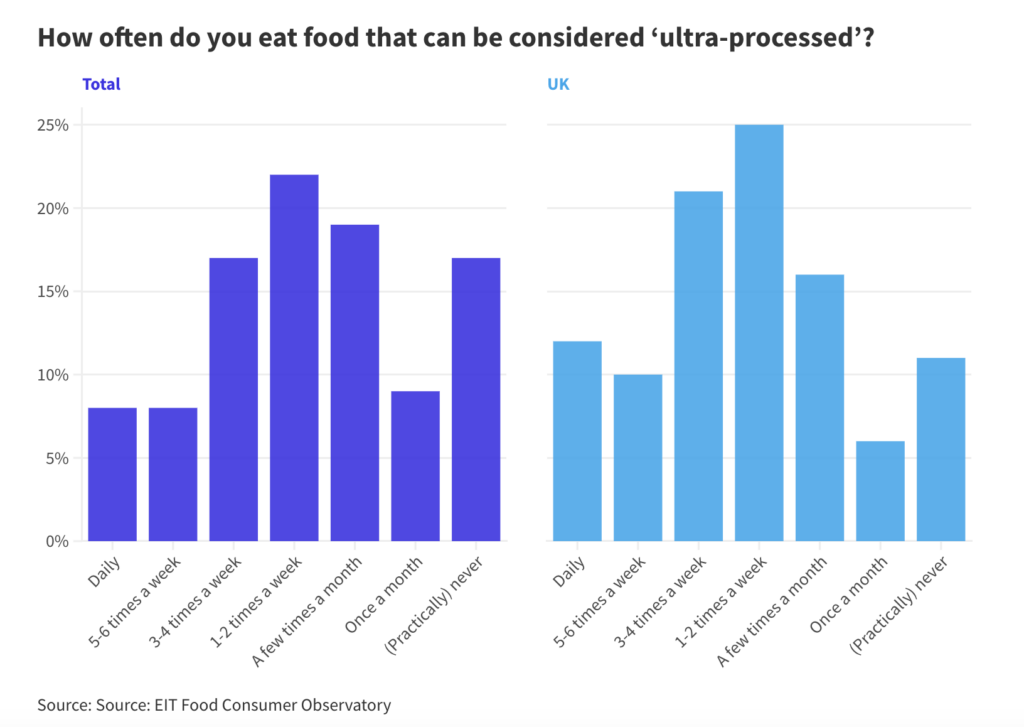Choose Ultra-Processed Free: Deliciously Ella Takes on Plant-Based Meat with Whole-Food Push
5 Mins Read
British vegan food brand Deliciously Ella’s latest campaign attacks ultra-processing, which is now among plant-based meat’s biggest pain points.
“Consumers en masse aren’t just asking: ‘Is it plant-based?’ but: ‘What’s actually in it?’”
These may have been the words of Jason Rosenbaum, co-CEO of US startup Actual Veggies, but they speak to a wider shift in the meat-free ecosystem.
Ultra-processed foods (UPFs) have been the talk of the food industry in recent months, with consumers largely attempting to shift away from such products out of health and nutrition concerns. One segment that has deeply felt the impact is plant-based meat.
While attacks from the meat industry are expected, brands making these analogues are in the crosshairs of other vegan producers too.
In the UK, Deliciously Ella is leading this shift. A pioneer of healthy plant-based eating, founders Ella and Matthew Mills recently sold the firm to Switzerland’s Hero Group (though they remain at the company). And as it looks to expand its footprint, the company has kickstarted a new marketing drive targeting UPFs.
Deliciously Ella looks to clear the hurdles for Brits’ UPF shift

This month, Deliciously Ella launched ‘Choose Ultra-Processed Free’, a bus campaign aimed at helping people “make healthier food choices by swapping UPFs for whole, natural foods that are both accessible and incredibly delicious”.
Across 40 London buses, in retailers across the city, and on social media, the company is encouraging Brits to shift away from UPFs. As part of the drive, it gave away 50,000 of its “UPF-free oat bars” across the capital and has launched a free e-book full of recipes and tips, called Less Processed, More Delicious.
“Ever picked up something in a shop, thinking it was a healthy choice, only to turn it over and find a list of ingredients you don’t recognise? You’re not alone,” the company writes in the book.
UPFs make up 57% of the average British diet, and up to 80% when it comes to children or people with lower incomes. Likewise, around two-thirds of calories consumed by adolescents in the country come from these foods.
“The result? A national diet made up mostly of products far removed from simple, whole food ingredients – often packed with emulsifiers, preservatives, and industrial additives. And for many of us, that means feeling increasingly disconnected from our food and how it makes us feel,” said Deliciously Ella.

A government survey in June 2024 found that ultra-processing is the second biggest food concern in the UK (after inflation), with 77% of people saying so. A separate survey found that 53% of them are in favour of a tax on UPF producers, if the revenues are directed to funding fresh produce for low-income families.
However, over half of Brits find UPFs cheaper and more convenient than whole foods, and only 48% of them go out of their way to buy unprocessed foods that require preparation.
In a nod to this obstacle, Deliciously Ella notes that “easy swaps, flavour-packed meals, and small sustainable changes” can collectively make a big difference: “Eating well shouldn’t mean spending hours in the kitchen or giving up the foods you love.”
UPF concerns have directly impacted plant-based meat

The e-book outlines that UPFs are “often designed to be irresistibly moreish, making us crave more”, and tend to be lower in fibre, vitamins and essential nutrients, and higher in sugar, salt, and trans fats. It cites research linking these foods to chronic conditions like obesity, type 2 diabetes, and heart disease.
While it’s true that many products considered UPFs – like sugary sodas, salty snacks, or packaged cakes – don’t exactly carry a health halo, other UPFs aren’t actually bad for you.
This is a distinction many experts have been keen to make: the level of processing doesn’t have anything to do with how nutritious a product is. What matters is the actual nutritional content, such as sodium, unsaturated fat, sugar, and so on. Products designated as UPFs can still rank high on the Nutri-Score scale, or the traffic light system adopted in the UK.
But the backlash against UPFs has had a spillover effect on plant-based meat too. Retail sales for these products were down by 6% in the UK in 2023, with volumes plunging further by 13%. The country’s largest meat-free company, Quorn, posted pre-tax losses of £63M that year, and this continued in 2024 too. Meanwhile, more youngsters are increasing their meat intake (19%) than reducing it (16%) in the UK.

Whole foods like beans, tofu (now in 8% of British households), and tempeh are gaining market share, while sales of vegan ready-meals – considered a UPF – plunged by 20%. That said, the Millses’ revamped Plants label offers a range of ready-to-eat meals, and recently acquired the brand name and assets of plant-based meal startup Allplants.
Ella built her wellness empire on healthy eating, and has been looking to capitalise on the anti-UPF push. “The plant-based category should be synonymous with real, nourishing food, yet for too long it has been dominated by ultra-processed meat alternatives, a trend now in steep decline,” she said after the Allplants deal. “We’re here to try and change that, and to reimagine the plant-based fixture with delicious, natural, quick wins for clever cooks.”
Deliciously Ella’s new marketing campaign is the latest example of vegan brands themselves attacking plant-based meat for being ultra-processed. Phil Graves, CEO of US mycelium meat startup Meati, recently told Green Queen that people shouldn’t have to choose between factory-farmed meat or “ultra-processed plant-based options that have a long list of ingredients you can’t pronounce”.



